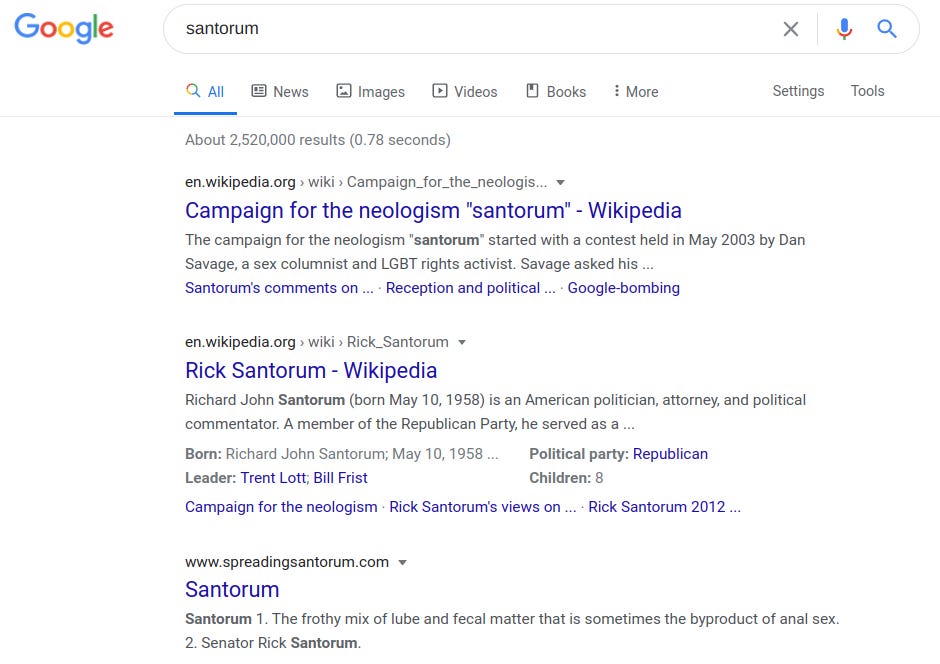Some loose thoughts on the election
I watched Hubie Halloween last night and that was a good decision.
A few loose thoughts today, since my brain is officially chocolate pudding.
As we talked about yesterday, over the last 20 years, the media has become a concurrent narrative of the election. (Axios has some data to support this.) Last night was no different.
Elections are not fun. They are tense, and magnified by lower third chyrons, eye-popping set pieces and specific theme music. CNN’s John King and Morning Brew disagree, thinking elections are a blast.
Are you having “fun” tonight? John King sure is. Over on CNN, the chief national correspondent is manning the map on the “magic wall” and telling anchor Wolf Blitzer how “fun” things like the count in Florida are. “This is why elections are fun,” he said at one point, talking with Blitzer about the continually changing results in Florida, in his trademark rapid-fire delivery. “It’s a lot of fun,” he reminded Blitzer later on.

And because we live in the dumbest timeline, CNN’s “Key Race Alerts” were sponsored by the Calm app, giving the contextualist advertising movement a moment in the spotlight.
Morning Brew, the newsletter that just got bought by Business Insider for $75 million, sent out its edition this morning to its 2 million subscribers:
The networks had their talking heads on, and I am surprised about some of the bookings:
ABC News had Chris Christie;
NBC News had Rich Lowry;
CNN had Rick Santorum.
Eric Boehlert at Press Run makes the case that the Associated Press failed readers last night:
Falling into the same, destructive trap much of the press has been stuck in for four years under Trump, the Associated Press early Wednesday morning committed a major blunder by allowing Trump to dictate the false narrative about the unfolding campaign. Rather than clearly calling out his lies about close, contested elections in states across the country, the AP let Trump make false assertions to dishonestly frame the crucial story of his premature victory declaration.
"Trump touts wins in key states, says he will fight election in Supreme Court," the influential wire service reported around 2 a.m., following Trump's untrue comments about the ballot-counting process, from the White House. "President Donald Trump said he is going to the Supreme Court to stop all vote counting in an election he claims to have already won."
The AP committed the cardinal sin of reproducing Trump's lies as news, without first informing readers the comments and assertions are untrue. The AP allowed Trump to promote the thoroughly false claim about the extended election needing judicial oversight because of fraudulent voter behavior. To date, there’s absolutely zero proof of fraud taking place.
I liked the New York Times tracker of trackers, showing how media outlets were calling the election.
Keep an eye on the grifters at Lincoln Project. The consortium led by Republican operatives raised $67 million, while the Republican Voters Against Trump raised $10 million, all in an effort to defeat Trumpism. Sure, they made compelling ads, but this election seems to show that online discourse does not equate to real life votes. 93 percent of republicans voted for Trump.
From the Daily Poster newsletter:
The takeaway: There may be a lot of so-called “Never Trump Republicans” promoted in the media and in politics, but “Never Trump Republicans” are not a statistically significant group of voters anywhere in America. They basically do not exist anywhere outside of the Washington Beltway or cable news green rooms -- and after tonight’s results, we shouldn’t have to see them on TV or even see their tweets ever again.
As for the Lincoln Project’s focus on trying to scandalize Trump’s character, the exit polls found that voters are far more concerned about policy issues than personality. Seventy-three percent of voters said their candidate's positions on the issues were more important in their vote for president than their candidate's personal qualities.
Also good to resurface Peter Hamby’s piece from September showing how things like the Lincoln Project are backfiring.
We should also consider trying to figure out how to fix polling. For the last few weeks, we’ve been told through all sorts of polls, not just from pollsters but from media companies conducting polls, that Biden had a double digit lead; that the Senate was going to flip to Democrats. Well, we find ourselves, again, questioning the validity of polling, something predicated on getting truthful statements from Americans.
Leading up to Tuesday, tons of ink was spilled about how the news media needed to take things slowly, be cautious in reporting, understand that it will take days, if not weeks to determine the outcome of an election that saw 100 million people vote before Election Day. And yet, once again, the media failed in this regard.
After four years of crying “Fake News” is it any surprise that the President of the United States falsely declares victory in the early hours of the morning? And news organizations can’t control themselves.
The Atlanta Journal-Constitution has an irresponsible front page, making a both-sides argument instead of playing it straight:
Here’s the Washington Post and New York Times front pages:
And finally, perhaps the most fitting story line to 2020:


Thank you for allowing me in your inbox, today and every day. If you have tips, thoughts on the newsletter, or updated polling data for me, drop me a line. Or you can follow me on Twitter. If you appreciated this edition, please consider sharing across your social networks and get your colleagues to sign up. Thanks for reading!
Diana Ross, “God Bless America”
Some interesting links:
For platforms:
YouTube channels made money off of fake election results livestreams with thousands of viewers (Insider)
YouTube Cut Down Misinformation. Then It Boosted Fox News. (NYT)
Snapchat now lets creators show off their subscriber counts (The Verge)
For publishers:
With Talk2020, The Wall Street Journal turns an internal reporting tool into a reusable news product (Nieman Lab)
For partnerships:
Comcast, Walmart in Talks to Develop and Distribute Smart TVs (WSJ)
For selling off assets:
AT&T considers selling significant minority stake in DirecTV, AT&T Now and U-Verse pay-TV operations, sources say (CNBC)









Your blog is spot on. The media and the pollsters have, at the very least, seriously slaughtered their brands. While I understand why the media can't help themselves in ramping and amping things up during the election cycle [ad dollars, clicks, etc.], I can't understand why pollsters can't get this figured out, particularly in this election era where voters were clearly in one camp or the other.
<Lincoln Project> Have a wealthy friend that was deeply into this. It's nice to see after the fact that 'online discourse does not equate to real life votes'. Same applies to twitter and other social media. Should be a lesson to everyone, including regulators. Good riddance.